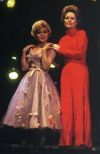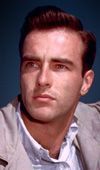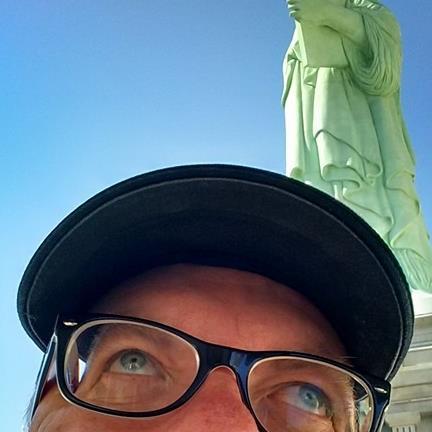Grand Hotel Question
#0Grand Hotel Question
Posted: 6/28/06 at 6:23pm
Maybe someone can answer this for me. The musical "Grand Hotel" was recorded several years after its opening. I was reading a review on Amazon.com and it said the reason for this was that the man who played the lead in the show passed on. I knew that, but the review contiuned to say that he died in the studio where it was to be recorded. That's why it didn't happen till some years later. I trust information from all of you a lot more than an Amazon.com reviewer, so, is that true? Did the man die in the studio the day the show's cast album was recorded? Was that the reason for the delay.
Oh yeah,
Does anyone know the name of the late performer? I'm sure I've heard it. I just can't remember at the moment.
FoscasBohemianDream
Broadway Star Joined: 1/20/06
#1re: Grand Hotel Question
Posted: 6/28/06 at 6:57pmDavid Carroll originated the role of Baron Felix Von Gaigern, he was nominated for a Tony in 1990 for this role. I don't know much about where he died exactly though but Brent Barrett didn't replace him till 6 months after the show opened.
cheezedoodle
Broadway Legend Joined: 11/15/05
#2re: Grand Hotel Question
Posted: 6/28/06 at 7:03pm
David Carroll died of AIDS on March 11th, 1992. I don't believe he had anything to do with the recording hold up at all. It was because of a feud between composers - and that is also why a complete cast recording was never made. The OBC is only the work of one of the composers, and the other would not allow his music to be recorded. The cut of Carroll singing Love Can't Happen that is included on the OBC is from a cabaret gig he did shortly before he passed.
#3re: Grand Hotel Question
Posted: 6/28/06 at 7:51pm
Yes, David Caroll did pass away after the first day of recording the cast album. He did show up on that very first day, but was too sick to sing it. Brent Barrett who had replaced him in the show (when he became too ill to do it live 8 shows per week), stepped in and recorded the role. They changed it from "The Original Cast Recording" to "The Broadway Cast Recording" for that reason. And they included that bonus cabaret track of Carroll singing "Love Can't Happen" as a tribute.
A very sad affair, indeed.
But I believe the reason for putting off the recording date(s) so long had to do with legal issues, as stated, not because of Carroll's health.
Sadly, they waited too long.
blocked: logan2, Diamonds3, Hamilton22
#4re: Grand Hotel Question
Posted: 6/28/06 at 7:54pm
Here's an obituary talking about the recording session.
NY Times
blocked: logan2, Diamonds3, Hamilton22
#5re: Grand Hotel Question
Posted: 6/28/06 at 10:40pmSad that the obituary doesn't mention his having AIDS or saying that he is survived by his "Companion." For some crazy reason, I feel like re-reading Larry Kramer's "The Normal Heart"...
larry64
Stand-by Joined: 3/3/06
#6re: Grand Hotel Question
Posted: 6/28/06 at 10:48pmThe NY Times article DOES mention his companion.
#7re: Grand Hotel Question
Posted: 6/28/06 at 11:34pmI met David Carroll, after a performance of BOHEME, at the Anspacher Theater in, I want to say, 1984 (I'm really horrible with dates). He was excellent in it; but Linda Ronstadt was also in it, and she was way out of her league, musically (I met her as well, that evening). She was really bad, and it was uncomfortable to watch (listen). Anyone else remember this show? Howard McGlinn was in it, as well.
#8re: Grand Hotel Question
Posted: 6/29/06 at 12:08am
David Carroll died of AIDS on March 11th, 1992. I don't believe he had anything to do with the recording hold up at all. It was because of a feud between composers - and that is also why a complete cast recording was never made. The OBC is only the work of one of the composers, and the other would not allow his music to be recorded.
There was a bit of a feud between Wright & Forrest and Tommy Tune. They resented the way Maury Yeston reworked some of their music and lyrics. He was supposedly brought in to add new numbers. In the end when it came time to publish the songs, the Wright & Forrest songs were published in one volume as originally written, and the Maury Yeston songs were published separately.
This delayed arrangements for the recording to the point where the minimal record company interest evaporated. For a while it looked as if the show would not be recorded until it played London. After the 1990 Tony awards business picked up at the theatre and fans wanted a cast album. When the show moved to the Gershwin theatre in February 1992 plans were made for RCA Victor to do a CD. David Carroll was in poor health at that time and arrangements were made to track his numbers first but he collapsed in the recording studio and died shortly after before anything could be taped.
The full cast gathered on April 2, 1992 to record the CD. It was a reunion of sorts since many had left the show by this time. Sadly just after the sessions, the show closed (after a successful 1,077 performances) and the CD was released two months later.
The CD bears witness to the rushed conditions: Some sloppy edits and fades and some wrong notes slipped through. Even the booklet was not up to RCA's usual standard with no background notes and instead of a formal synopsis they reprinted the summary of scenes and musical numbers from the playbill. However virtually the full score is recorded (barring a few short bits like "The Boston Merger" and "No Encore" which would only have worked in the context of longer spoken scenes.) There is one odd change: on the CD Karen Akers sings "What YOU need" while in the show it was "What SHE needs." Otherwise the score is recorded as heard on stage.
Considering the way the score was pieced together, it’s amazing how seamlessly it flows together (thanks in no small part to Wally Harper.) It would have been better to have had a video of the whole show to preserve Tommy Tune’s superb staging, but despite its flaws, it is a cast album that has gotten plenty of play in my home.
Cast albums are NOT "soundtracks."
Live theatre does not use a "soundtrack." If it did, it wouldn't be live theatre!
I host a weekly one-hour radio program featuring cast album selections as well as songs by cabaret, jazz and theatre artists. The program, FRONT ROW CENTRE is heard Sundays 9 to 10 am and also Saturdays from 8 to 9 am (eastern times) on www.proudfm.com
#9re: Grand Hotel Question
Posted: 6/29/06 at 12:43am
I do wish that it had been a two disc set. (It had much more interesting music than "Aspects of Love" and much fewer bad lyrics. Hell, "Aspects of Love" is one of those shows where a single disc would serve it better.)
I miss the scene where all of the principles (except for the ballerina) are "sitting" in telephone booths and the way their songs interlace and the complete "Dance of Love and Death" and the way when Kringelein is yelling at the businessman during "Who Couldn't Dance With You" how the music stops and you hear the rhythmic shuffling of the dancers feet as they keep dancing, as if nothing else is going on.
I saw that show in New York twice, two nights in a row. Got a ticket for it at the "two-fers" booth and the next night, I saw it there again and got another ticket! I could have gotten addicted to that show. It was the best ensemble cast I've ever seen. After the show, I waited at the stage door. But, I didn't speak to anyone because I felt that if I singled anyone of them out to speak to, I'd be slighting the rest of them. And there was Karen Akers, whom I love, so tall and regal. And there was Jane Krakowski, so cute and huggable. Didn't speak to any of them.
Boy that was dumb of me.
FoscasBohemianDream
Broadway Star Joined: 1/20/06
#10re: Grand Hotel Question
Posted: 6/29/06 at 12:59amI think it's absurd Robert Wright and George Forrest got upset about the additions to the score, I believe Maury Yeston not only enriched the score but managed to keep it uniform to Wright and Forrest's. As a matter of fact Tommy Tune is probably the one reason the show was a hit given the team's previous attempt at adapting the film resulted in quite a fiasco. This is one of my favorite shows, I just wish Kathi Moss and Karen Akers had done more Broadway shows, this show was sort of a Nine reunion, what's funny is that the show made Krakowski a star and she went on to win a Tony for Nine.
#11re: Grand Hotel Question
Posted: 6/29/06 at 1:09am
The show itself was a strange hybrid. It was one of the offshoots of The Los Angeles Civic Light Opera. For those of you who have never heard of this amazing theater company, let me explain that the company originated in the 1930's in Los Angeles which was, of course, so far from New York (three days by rail) that the only theater to play in town was touring shows. There was no real, indigenous theater, yet the town was awash in theater people who had come out from New York to make a career in "the talkines."
The LACLO was run by Edwin Lester. He was the producer for decades. Name starting to sound familar? Lester mounted reproductions of Broadway shows, including fine runs of Showboat and Desert Song and Rose Marie. In fact, he hired Zeke Colvan, the "director" of the original 1926 Showboat on Broadway to serve as resident director. As I said, these shows were by-and-large total copies of Broadway. They played a season at The Biltmore Theater in downtown Los Angeles, then The Philharmonic Theater because the Biltmore went back to being the Shubert road theater.
The musicals would then travel up to San Francisoc, where they were performed under the auspices of the San Francisco Light Opera.
In 1945, Lester got ambitious and decided to mount his own original musical. Two young lads came to him with a wacky idea to make a musical with a score based on the songs of Edward Grieg (probably influenced by Oscar Hammerstein's success the year before with "Carmen Jones" based on Bizet's Carmen).
The show was transferred to Broadway, the first case of a show going west to east. It ran for 860 performances and was called "Song of Norway."
Then the lyricists, Wright and Forrest teamed up with Lester again for their masterpiece, "Kismet" using songs with music from the Polovtsian Dances and other themes by Alexander Borodin.
NOW you recognize Lester's name, huh?
After those two successes, Wright and Forrest tried time and again to recapture the lightning with little success. Most of their shows (useually done with Alfred Drake in the lead) died on the road heading to Broadway, including "Zenda" with Drake and Chita Rivera in her first staring gig after West Side Story and a show called "AT THE GRAND" starring Paul Muni as Kringeline in an adaptation of "Grand Hotel." Originally, Bert Lahr was supposed to play Kringeline, but he died and Muni was brought in. I understand that when the show was about to go to Broadway, despite a 1,000,000 advance, Muni refused to sign a contract and the show died.
I have a copy somewhere of the "At The Grand" program from its run in Los Angeles and about half the songs are recognizable from the show we all know.
#12re: Grand Hotel Question
Posted: 6/29/06 at 2:31amI've seen a copy of that program out here in L.A. with Paul Muni starring in it, singing "We'll Take a Glass Together." It's amazing to me that this song (and other large sections of "Grand Hotel" the musical) were written so many years earlier!
blocked: logan2, Diamonds3, Hamilton22
Broadway Legend Joined: 12/31/69
#13re: Grand Hotel Question
Posted: 6/29/06 at 10:05amBest12Bars has the story correct. I still have the brief NY Times obituary. I consider having seen David Carroll in Grand Hotel as one of the highlights of my theatre-going career. He was magnificent. Jane Krakowski also made a very impressive debut in a featured role (who knew who anyone was in Starlight Express?). I'm always impressed (not amazed) when I listen to the score how much Yeston's work sounds like Wright and Forrest's work.
#14re: Grand Hotel Question
Posted: 6/29/06 at 2:02pm
Oh how I miss David Carroll! Thank God he was still healthy enough to perform "We'll Take a Glass Together" on the Macys Parade that year. I recall it was snowing and the flakes were huge. I consider that videotape a rare keepsake. I also had the fortune of seeing him in the ill-fated Chess...God I had a crush on him!
Karen Akers was extremely approachable the times I met her performing at Odettes in New Hope.
#15re: Grand Hotel Question
Posted: 6/29/06 at 4:03pm
GRAND HOTEL is one of those shows that people probably appreciated more on subsequent viewings than after the first time. It was so smooth in its transitions and so brilliant in playing scenes in counterpoint to each other that often you just could not fully absorb it all in one viewing. But what a great score emerged. You can literally hear that "time is running out" in the underscoring. The telephone scene (mentioned above) was mostly underscored dialogue with a few sung lines scattered throughout. That is probably why it was not recorded, though the CD producer (Peter Matz) did a great job stitching the various musical sections together to telescope the 15-minute opening sequence down to 8 minutes on the CD.
It lost the Best Musical Tony award to CITY OF ANGELS (another excellent musical. Boy, 1989-90 was a pretty good year: GRAND HOTEL, GYPSY (Tyne Daly revival), SWEENEY (TEENY) TODD (Beth Fowler, Bob Gunton revival), CITY OF ANGELS, ASPECTS OF LOVE.... oops!) but thanks to winning 5 other Tonys and the "We'll Take a Glass Together" number opening the broadcast its sales jumped and by the time it closed it had run over 1000 performances and turned a profit.
At the time John Yap was working with Wright and Forrest on doing new double CD sets of SONG OF NORWAY and KISMET. He was considering doing a full 2 CD set of GRAND HOTEL complete with the original versions of the AT THE GRAND songs as bonus tracks. Never happened, though. A shame.
Cast albums are NOT "soundtracks."
Live theatre does not use a "soundtrack." If it did, it wouldn't be live theatre!
I host a weekly one-hour radio program featuring cast album selections as well as songs by cabaret, jazz and theatre artists. The program, FRONT ROW CENTRE is heard Sundays 9 to 10 am and also Saturdays from 8 to 9 am (eastern times) on www.proudfm.com
#16re: Grand Hotel Question
Posted: 6/29/06 at 5:23pmI loved GRAND HOTEL, on the very first viewing. So, nobody else remembers the BOHEME with David Carroll?
#17re: Grand Hotel Question
Posted: 6/30/06 at 4:02pmCarrol and Jeeter's "We'll raise a glass together" is available on youtube (search grand hotel broadway tony)
#18re: Grand Hotel Question
Posted: 6/30/06 at 4:07pmIf it's the Tony clip then it's not Carroll. It's Brent Barrett who replaced him.
blocked: logan2, Diamonds3, Hamilton22
#19re: Grand Hotel Question
Posted: 6/30/06 at 11:30pm
best12bars, you are right. It is the Tony, but it's also tiny, so I captured it with Keepvid and turned it into an avi and watched it full screen. No David.
Sorry
#20re: Grand Hotel Question
Posted: 7/1/06 at 12:10am
David Carroll played in GRAND HOTEL from opening through May8, 1990 when Brent Barrett took over. ON May 29, 1990 Rex Smith started playing teh role but Brent Barrett did teh Tony telecast. David Carroll returned Dec 2, 1990 thru March 4, 1991 when John Schneider took over the role.
Brent Barrett played the Baron in the tour which started in November 1990 and played 2 years across North America before going to London.
Cast albums are NOT "soundtracks."
Live theatre does not use a "soundtrack." If it did, it wouldn't be live theatre!
I host a weekly one-hour radio program featuring cast album selections as well as songs by cabaret, jazz and theatre artists. The program, FRONT ROW CENTRE is heard Sundays 9 to 10 am and also Saturdays from 8 to 9 am (eastern times) on www.proudfm.com
Videos







